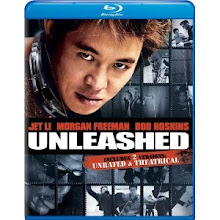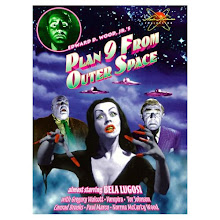by Jason Pyles / August 24, 2009
We cannot underestimate the significance of the gulf that exists between a spectator and a film from a land that’s alien to said spectator. Embracing a movie made in one’s own culture is sometimes difficult enough — David Lynch’s “Mulholland Dr.” (2001) provides case in point.
So when we Americans — namely, those who have been inundated for 25 years with the high-speed editing and brisk pacing from the so-called MTV generation — get to experience a work by director Yasujiro Ozu (he who was said to be “the most Japanese of directors”), we are likely to resist his gentle, leisurely story-telling.
(By the way, Ozu died on his 60th birthday, December 12, 1963. That always strikes me as particularly sad when someone goes out the day they came in.)
Speaking of sad, Ozu’s “Tokyo Story” (1953) has an undercurrent of deep sadness that tends to stir its viewers to either feel reflective or regretful. “Tokyo Story” is about a couple who travel a considerable distance to visit their adult children and grandchildren in Tokyo. Unfortunately, the sojourners are mostly perceived as an inconvenience. As a result, their children try to whisk them away and pawn them off onto alternative entertainments, when the visitors only wanted to see their family.
The grandmother falls ill and dies, but really, that’s not what is so sad about this movie. What’s heart-breaking is the children’s apparent disregard for the value of their parents’ company, and such opportunities are perishable. The film makes it clear that the trip is somewhat arduous for the aged travelers, but they wanted to see their family, so it was worth the trip. Their visit was squandered, and when the old couple return home and she dies, the children take the time to go visit them.
My good, wise friend Fred Connors once said, “If you don’t come to see me in the hospital — don’t bother coming to see me at my funeral.” I bet most of us are guilty of too-late-now, after-the-fact attempts at visiting. That’s half of the masterstroke to Ozu’s film: It is a universal theme — we’re nuts about our parents when we’re young. As we become adults, they become an inconvenience. We can all relate. I’d bet just about everyone who sees this film can think of someone they should (or should have) spent more time with, “if tomorrow never comes.”
Now, if this theme of neglecting our loved ones and not returning the favor to take care of them speaks loudly to us Americans, think of how this film must play to Japanese audiences, a culture known for revering and valuing its elderly.
The other half of the film’s power comes from its understatement. In traditional Hollywood films, when a dramatically significant moment occurs — think of any one instance of mistreatment in this film — Hollywood would underscore it with emotional, swelling music and zoomed-in reaction shots. Not Ozu. The hurtful elements of his scenes unfold so subtly, it’s almost as if Ozu looks away, because the moment is a little too painful. Regret knows no international boundaries, and neither does “Tokyo Story.”






























































1 comment:
That's why you are the master...
Post a Comment